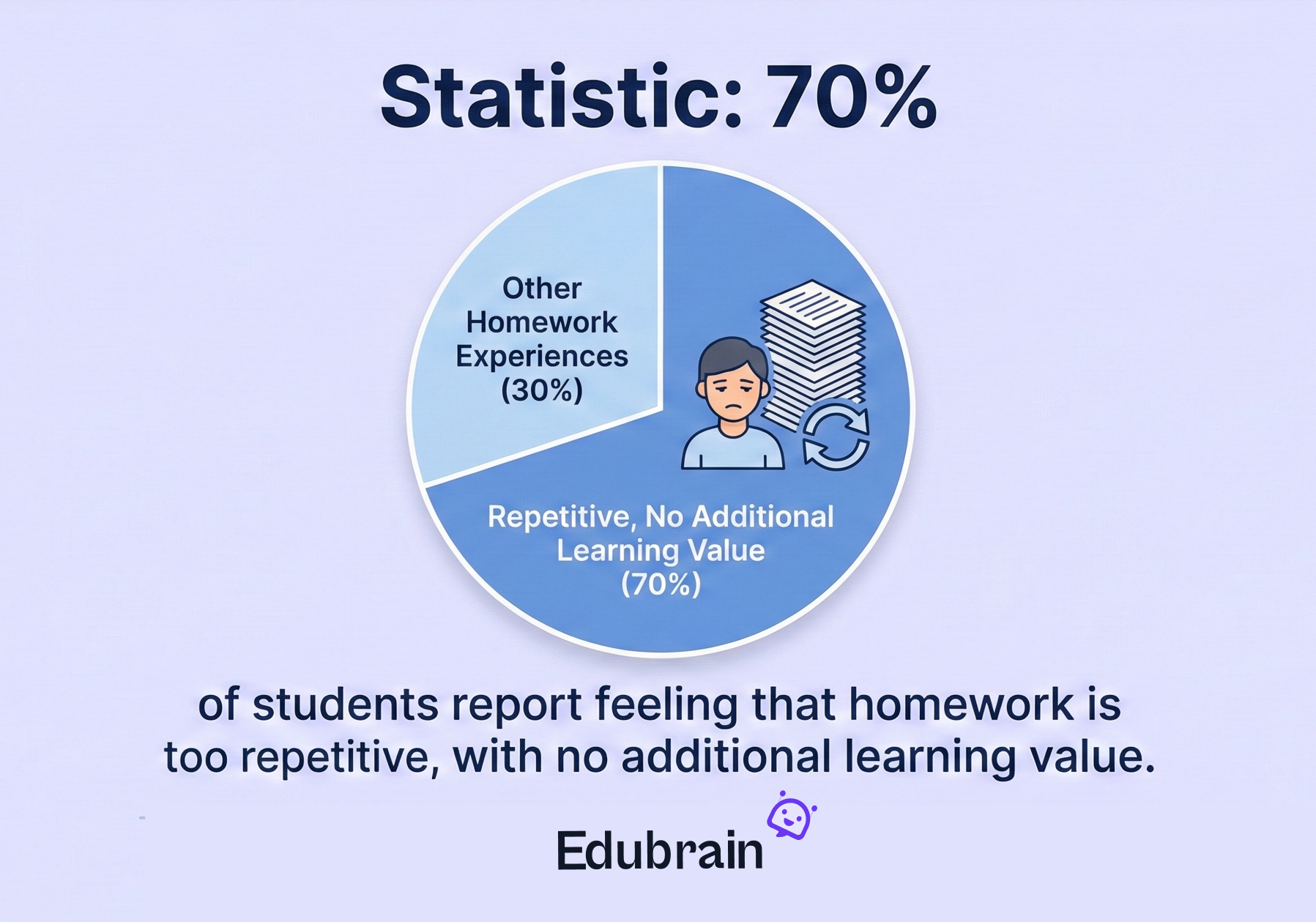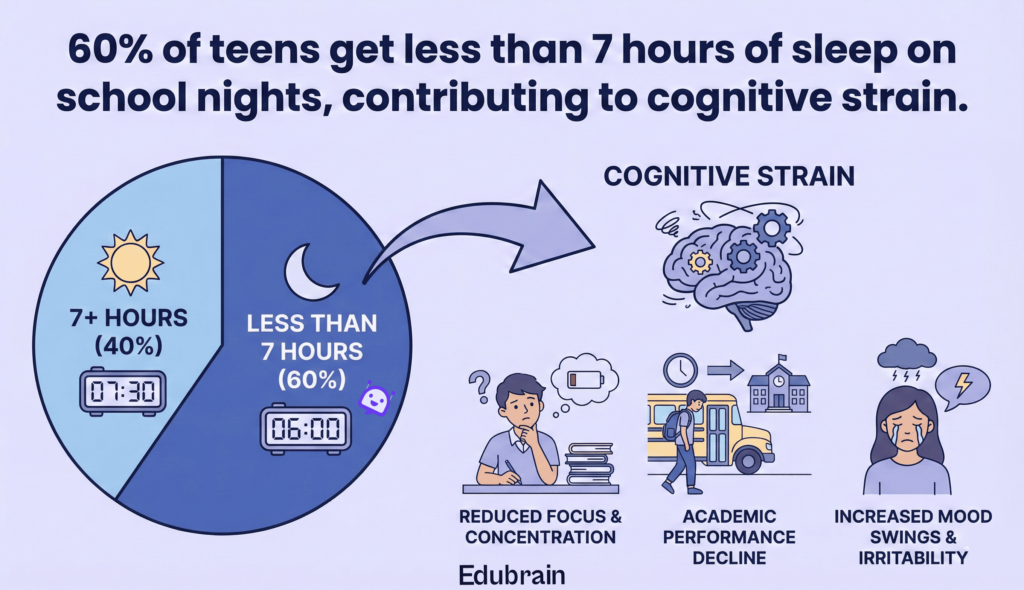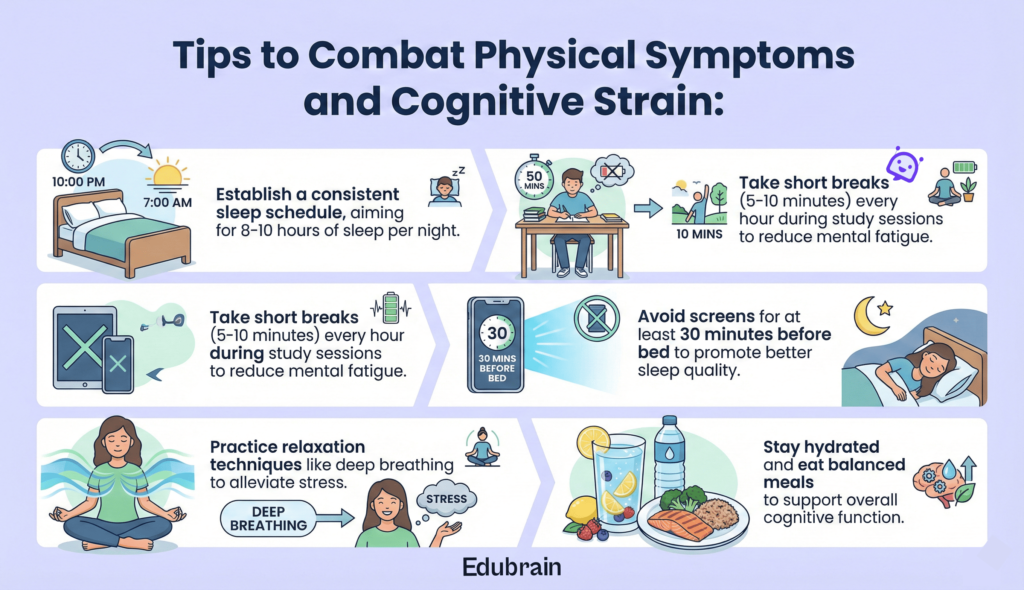“Help me find the cheapest pair of socks available online.” “Help me create my own language.” “Show me what my...
Why Too Much Homework Hurts Learning and Health
Homework is a normal part of school, but its effect on students’ mental health is now a major concern. Many kids spend hours every night on assignments, often feeling tired and stressed. Teachers see it as a way to practice and build discipline, while parents hope it pushes their children to succeed. But too much work can cut into sleep, family time, and social life. Homework can help when balanced, yet if it becomes excessive or poorly planned, it risks harming students’ mental, social, and emotional well-being.
Table of Content
ToggleThe Original Purpose of Homework Assignments
Discussions around the issue of homework are mostly centered on the pressure it puts on high school students’ time management, yet it was not intended to be stressful. It is a simple concept: allow students to learn what they have studied in the classroom and retain the information. For subjects that rely on repetition, such as math, many students and parents look beyond the classroom for support.
Textbooks, online lessons, and even detailed guides on math are often used alongside homework, showing that families see these assignments as part of a larger effort to make learning stick. There is also the argument by teachers that homework instills independence, since students are left to direct their time and accomplish tasks with no one around to supervise them.

Recent studies, however, point to clear limits. A 2022 study by Researchers at Stanford University and the OECD discovered that 90-120 minutes of homework is the most effective amount of homework for maintaining academic performance that students should have per night (high school). After this, the additional hours do not improve grades but cause stress, fatigue, and sleep deprivation. The students who study three or more hours per night do not show any improvement in tests, but indicate more anxiety and less time to spend on other activities. This begs whether homework is fulfilling its original goal or is causing new problems, not worth the advantages.
Too Much Work, Too Much Stress
Students in the U.S. tend to do homework longer than the studies would recommend. Numerous high-schoolers say they have three or more hours of homework a night, which cuts time spent sleeping, family, and other time-consuming activities. There is also the pressure of dealing with multiple topics simultaneously, each with its own deadlines. Studies point out the problem:
- Research by Stanford University (2014) revealed that students in high-achieving schools had a mean homework time of 3.1 hours a night.
- The same research indicated that homework is the primary stressor in the lives of 56 percent of students.
- A CDC report (2023) reported that more than three out of five teens in the U.S. sleep less than eight hours on a school night and that homework was frequently cited as a reason.
- OECD (2022) indicated that the United States students dedicate an average of 2.7 hours a night doing homework, which was 1.5 hours in Finland.
These figures indicate that the issue is the number of hours and the nature of the assignments students have to cope with. As an example, long essays, readings, and research projects in other subjects, such as civics or government, may stretch the work late into the evening. Many students felt forced to turn to online resources to manage this, and searches for political science homework help are common.
This reflects how homework, once meant as practice, often becomes something students can only handle with extra support. In schools where college entry is a strong focus, students push themselves to stay even with or ahead of classmates. This cycle of long hours, heavy tasks, and competition makes homework a major source of stress and potential physical health problems during the school week.
Homework Stress and Student Mental Health
Daily assignments usually cause anxiety about deadlines and maintaining a steady grade. With time, such pressure may decrease motivation and predispose one to depression. According to the first-person reports of many students, evenings are not associated with time to relax or concentrate on individual activities but with tasks. When the workload is long-lasting, school might turn out to be a chore rather than a learning facility.
| Homework Time | Reported Effects |
| Less than 1 hour | Lower stress, more rest, time for other activities |
| 1–2 hours | Workload seen as manageable, mood stable |
| 2–3 hours | More frequent worry, drop in motivation |
| More than 3 hours | Higher risk of anxiety, depressive symptoms, sleep loss |

According to the Sleep Health Journal (2022), students who had a night of homework of more than two hours were twice as likely to report having a depressive symptom. In a report by CDC (2023), teenagers with heavy homework assignments also reported poorer mental health than students with less work per day. To cope, some students turn to online tools, with searches for AI to do homework now common. This may alleviate the pressure in the present, but tends to divert attention towards learning and puts pressure in the future when exams are to check actual knowledge.
Physical Symptoms and Cognitive Strain
Late study hours often disrupt sleep. According to the CDC, most teens in the U.S. (more than 60%) get less than seven hours of sleep on a school night, which is lower than recommended. Insufficient sleep causes loss of concentration at school, poor memory, and makes one less alert. Long hours studying also have their effect on the body:
- Headaches and stomach pain are common.
- Lower immunity increases the risk of illness.
- Higher cortisol levels interfere with concentration and long-term learning.

These problems grow when workloads stay high week after week. To cope, students sometimes search for ways to finish tasks more quickly. In geography courses, for example, many now turn to AI for geography to handle demanding assignments. This may save time on one task, but it does not reduce the health effects of short sleep and repeated stress. The combined impact of reduced rest, recurring health issues, and weaker focus shows how heavy study loads put strain on both the body and the mind, especially in younger students.
Time Lost Outside the Classroom
Homework that goes well into the night causes students to miss out on other aspects of life. According to OECD data (2023), students who had more than three hours of homework per night were 40% less likely to join extracurricular activities, on average, than their peers with less homework. Some end up at a desk rather than playing soccer, attending music classes, or having dinner with their families. This will leave them less time to exercise, get creative, and spend time with the people they hold dear.
The impact is also uneven. Others complete their assignments at a fast rate due to the fact that they have quiet rooms, computers, and support at home. The others are in unquiet environments, are living together or sharing a bedroom, or do not access the internet, and this makes the same job take so long to take. A student can do a history project and even have time to attend an art lesson; another student can stay up till late and miss. In the long run, such disparities translate to fewer opportunities to develop critical life skills such as teamwork, leadership, and social skills that develop beyond the classroom.
Better Ways to Assign Homework
Homework assignments ends up being busywork. Students often spend hours copying notes or repeating the same exercises, but this doesn’t always help them learn. OECD data (2022) shows that students in Finland spend much less time on homework than students in the United States, yet their test scores are still strong. This makes it clear that piling on more assignments does not guarantee better results. What matters is the quality of the work, not the number of pages or hours. There are simple steps schools can take to make homework more useful:
- Keep tasks short and tied to the lesson from class.
- Skip assignments that only take time without teaching anything new.
- Make sure students still have time to sleep, join activities, and spend time with family.
- Remember that not all students have the same resources at home.
Unequal access is often overlooked. One student may have a quiet room, a computer, and internet access, while another does not. In science subjects, for example, some students finish faster by turning to a geology assignment solver, while others spend much longer trying to complete the same work without help. This creates a gap with little to do with ability and more to do with resources. Homework should give every student a fair chance to learn and prepare for higher education, not reward those with extra support. The goal should be to design assignments that reinforce lessons while still leaving space for the rest of life.
Conclusion
Homework can help when it gives students a chance to practice what they learned in class, but too much quickly becomes harmful. Long nights filled with assignments leave less time for sleep, family, or simple breaks, and the stress that builds up takes away from real learning. The problem isn’t that homework exists, but that excessive homework often goes far beyond what students can manage.
A better approach is to keep homework focused and meaningful. Teachers can design tasks that support lessons without taking over the whole evening, while schools and families push for policies that put health on the same level as grades. Learning is important, but so is well-being, and education works best when it protects both.
Latest Articles
In a world where technology increasingly defines our interactions, using AI for flirting is no longer a futuristic concept —...
Artificial Intelligence is now the centre of technological evolution. From healthcare to the automotive industry to finance and education, AI...
